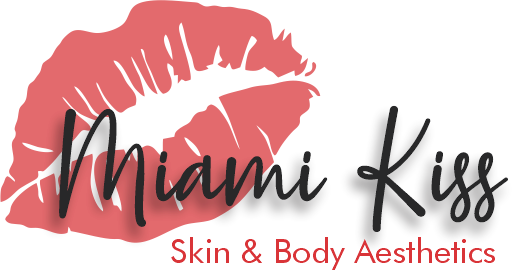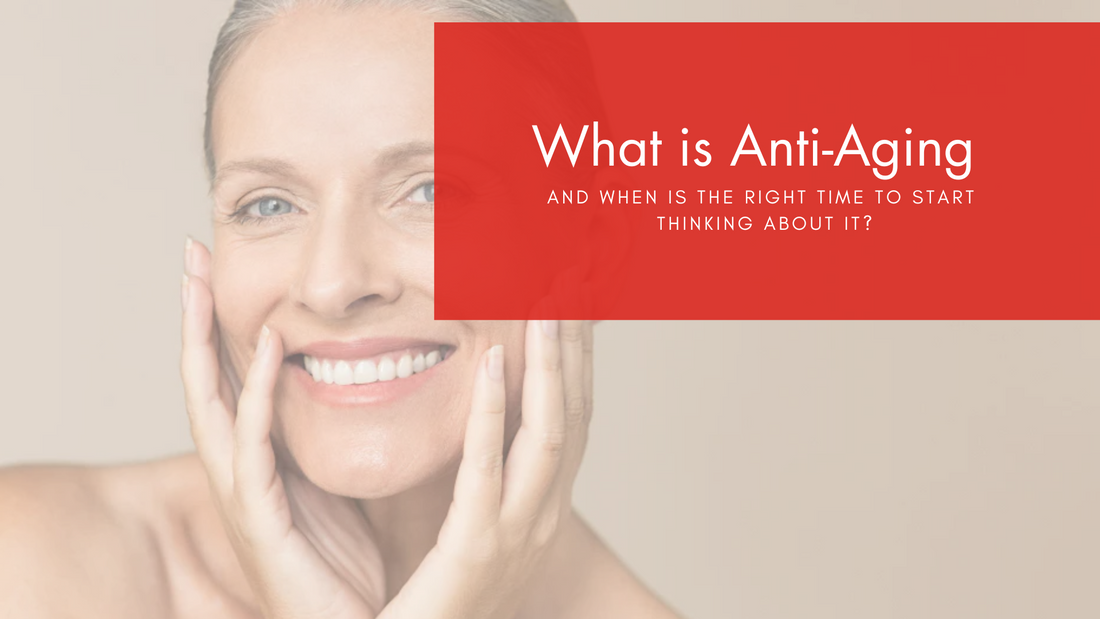The phrase 'anti-aging' gets thrown around a lot within the beauty and cosmedical industries, sometimes with genuine meaning and other times as a generic term that is supposed to grab your attention. We know what feeling the term evokes, but what does Anti-Aging really mean? Let's delve a little further into this ...
What is Anti-Aging?
According to the Oxford Languages online dictionary, the definition of anti-aging is '(of a product or technique) designed to prevent the appearance of getting older'.
Often used as an adjective for various cosmetic serums, creams and treatments, 'anti-aging' has become a phrase easily seen on a daily basis throughout advertising and social media channels.
While typically targeted at more mature aged demographics and focused on 'turning back the clock', anti-aging can encompass various other individual aspects, including dietary choices, exercise regimens, stress management, and medical interventions.
What age should you be thinking about Anti-Aging?
Anti-aging isn't just an 'old person' problem. You can never be too young or too old to be thinking about improving your skin and body.
Starting children and teens with simple basics such as a daily routine for washing the face and applying moisturiser / SPF will do wonders in their long term anti-aging
While in your 20's and 30's it's common to include more steps and/or products to your daily routine as well as looking for appropriate treatments. We know it's your late twenties / early thirties when collagen production starts to slow down or stop, and so it's around this age that if you haven't ever thought about anti-aging before that it should become more of a priority. Depending on your skin type and lifestyle, a good place to start would be to include suitable skin treatments such as facials, masks and if appropriate for you skin needling (including Collagen Induction Therapy).
We see with a lot of our Miami Kiss clients it is when the 40's and 50's hit that skincare and anti-aging becomes a larger focus. Sometimes it's the fact that children have gotten a little older and parents are getting more time back to themselves again, other times it can be the realisation that it is time to get a professional help to further results.
By your 40's collagen production has dropped dramatically so typically around this time the visible signs of aging such as wrinkles and sagging skin become a concern. Collagen stimulating treatments such as Hifu which also aims to tighten skin, as well as skin needling treatments like PRP (Platelet-Rich Plasma) and Skin Boosters are ideal.
Where do I start with Anti-Aging?
As we mentioned above there is never a bad time to start your anti-aging process, and for anyone starting from scratch this can be as simple as developing a daily routine.
Start with finding a cleanser, moisturiser and SPF that is suitable for your skin and make sure to use daily.
From there we would recommend seeing a professional (such as our lovely team at Miami Kiss) to discuss your concerns and what you are hoping to achieve so you can be better guided on what skin treatments or body procedures might be right for you. P.S. we offer complimentary consultations (book here).
You may also want to look at your diet and lifestyle to see what other changes you could implement to improve your overall wellbeing.
Is Anti-Aging just for women?
The concept of anti-aging applies to both women and men, but the ways in which it is approached and the specific concerns that are addressed can vary between the genders.
Women and men have different hormonal profiles, which can influence the aging process. For example, women experience menopause, a stage marked by a significant decrease in estrogen levels, which can lead to various physical and physiological changes, including changes in skin elasticity, bone density, and fat distribution. Men, on the other hand, experience a gradual decline in testosterone levels with age. Anti-aging strategies might take into account these hormonal changes and their effects on skin health, muscle mass, and overall well-being.
Societal standards of beauty and aging often place different pressures on women and men. Women are often subject to more intense scrutiny and cultural pressures to maintain a youthful appearance. This can result in a greater emphasis on skincare, cosmetic procedures, and other beauty-related anti-aging efforts. Men may also feel pressure to look youthful, but the societal standards and the ways in which they are communicated might differ.
The skincare and beauty industry often tailor their products and marketing strategies to specific gender demographics. For instance, skincare products marketed to women might focus on addressing concerns like fine lines, wrinkles, and skin tone, while products for men might emphasise skincare needs related to shaving and sun protection.
While the core principles of anti-aging, such as maintaining a healthy lifestyle and using sun protection apply to both genders, the specific approaches might vary. Men might lean towards simpler skincare routines and focus on practicality, while women might be more inclined to incorporate a wider range of beauty and skincare products.
Feeling a little clearer about anti-aging and how it can affect you?
It's important to note that while some anti-aging strategies may have visible effects, aging is a natural process that cannot be completely halted or reversed. Adopting a healthy lifestyle and using appropriate skincare though are a great start no matter your age.
If you are wanting to start your anti-aging journey but not sure where to start, may we suggest booking a complimentary consultation with the Miami Kiss team?
Click here to access our online booking system

